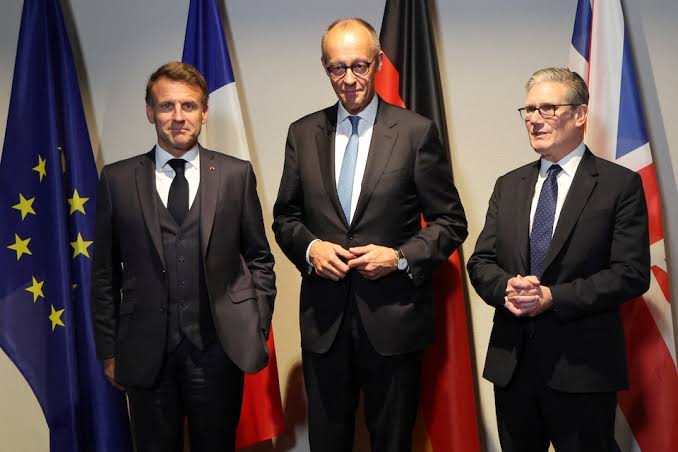By Eniola Amadu
Britain, France and Germany will begin the process of reimposing United Nations (UN) sanctions on Iran, accusing Tehran of breaching the 2015 nuclear agreement meant to prevent it from developing nuclear weapons.
The three European powers, collectively known as the E3, met with Iranian officials on Tuesday in a last attempt to preserve diplomacy before their legal ability to trigger the “snapback” of sanctions expires in mid-October.
Diplomats revealed the talks failed to secure sufficient commitments from Iran.
READ ALSO: Nigeria, Germany to strengthen defence ties on insecurity
Foreign ministers from the E3 informed U.S. Secretary of State Marco Rubio of their decision on Wednesday.
They are expected to send a formal letter to the U.N. Security Council on Thursday, initiating a 30-day process that would restore sanctions on Iran’s banking, financial, hydrocarbons and defence sectors.
The E3 hopes the move will pressure Tehran into offering credible guarantees within the next month that could convince them to defer further measures.
Prior to this step, the European powers had offered to delay the snapback by up to six months if Iran agreed to resume full U.N. nuclear inspections and engage in direct talks with Washington.
Iran has warned of a “harsh response” if sanctions are reinstated.
Meanwhile, tensions remain high after the U.S. and Israel were blamed for a June bombing campaign that struck Iranian nuclear facilities, halting parts of its programme but also fuelling Tehran’s anger.
According to the International Atomic Energy Agency (IAEA), Iran has enriched uranium to 60% purity — close to the 90% level needed for weapons-grade material. Before the June strikes, Iran had amassed enough enriched uranium, if further refined, to build up to six nuclear weapons.
READ ALSO: European postal services halt parcels to US amid tariff uncertainty
However, the IAEA has stressed that producing an actual weapon would take longer and that it has no credible evidence of a coordinated weapons programme.
Western governments argue that Iran’s nuclear advances far exceed civilian energy requirements. Tehran insists its programme remains peaceful and denies any intention to build nuclear arms.



